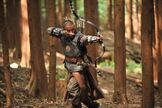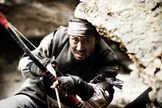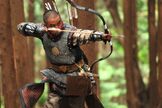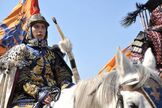When the Khitan people ruled, Jurchen became a vassal state of the Khitan. The Khitan people were very arrogant and often occupied Jurchen women. Later, a man named Wanyan Aguda led his tribe to revolt, and his 2,500 men rose up and 3,700 men defeated the Liao and Shiwan army. Later, the Jurchen attacked the city with a unit of 10,000 people, and that is, about 10,000 troops were sent. Therefore, it is said that the Jurchen Soldier is dissatisfied, and if it is full, it is invincible in the world.
Later, Yan Agu hit the title of Ning Jianguo Jin. Because of Song and Jin’s maritime alliance, the two sides joined forces to attack Nanjing (now Beijing) in the Liao Kingdom. Song sent about 150,000 to 200,000 troops, with new weapons and a tight lineup. Under the leadership of Yelü Dashi, the Liao army and the exiled Liaodong mercenaries, Guo Yaoshi’s Bohai people, put together 20,000-50,000, and defeated the Song army twice more than 100,000 in Baigouhe, Hebei. In the end, Song had to call in Jurchen and defeated Nanjing.
Therefore, the Jurchens were the strongest army in ancient China before the appearance of the Mongolian cavalry, and they had a small number of combatants and strong combat effectiveness. They often won more with less. Many years later, it was still this nation, under the leadership of Nurhachi and Huang Taiji, once again broke through the city of Beijing, established the Qing Dynasty, and became China's last feudal dynasty. According to records, the Jurchen people climbed into the city like an ape, and entered the water like an otter. They could travel freely regardless of terrain, cut accurately, and had a strong sense of teamwork. This is vividly expressed in this movie. Unlike in domestic movies, the description of this mysterious force is too stylized and face-like.
View more about War of the Arrows reviews











